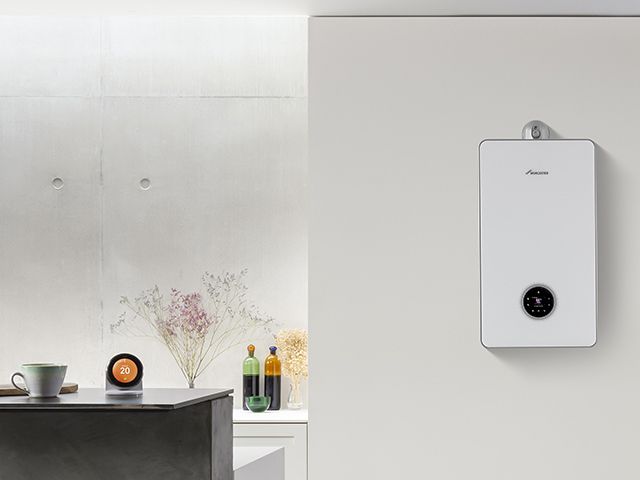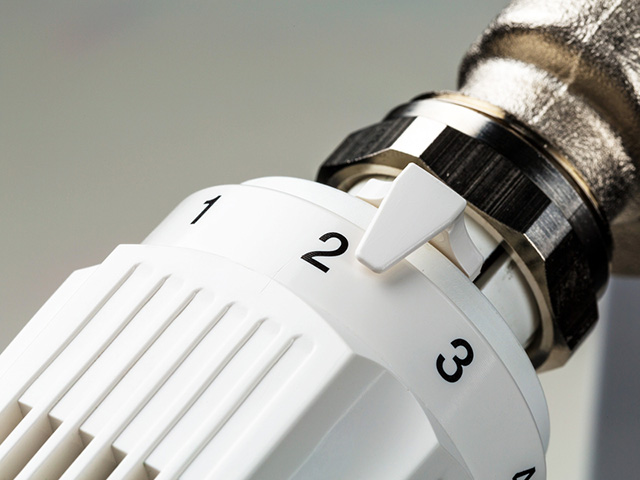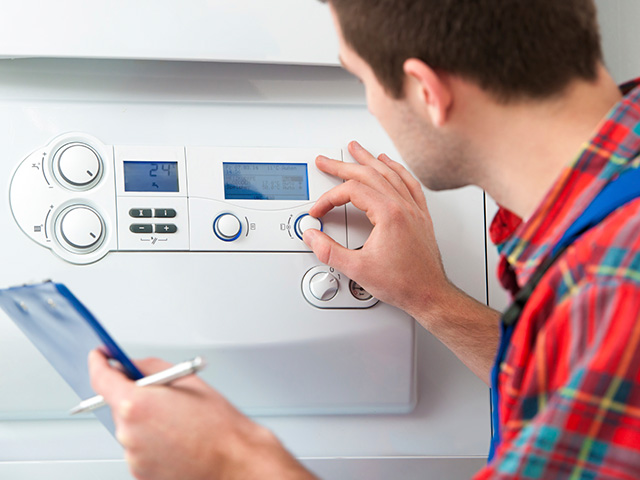
Boilers: a buyer’s guide
While it may be a necessary, but unwanted expense, replacing your boiler can be the gateway to lower heating bills. Here’s what you need to know before you buy.
Image: Boiler guide
It’s not something we look forward to, but eventually that old, noisy, unreliable, and expensive-to-run boiler needs to be replaced. The boiler is one of the most important appliances in your home and, on average, costs between £1,000-£2,500 to install. If you choose the right boiler, it will provide all the heating and hot water you need as cheaply as possible, and should last for up to 8-10 years in good working order.
However, make the wrong choice, and you will be spending hundreds of pounds on repairs regularly, shivering through wintry days, and missing more than a few showers. To make sure you buy the right boiler for your home, there are some key factors to keep in mind.
David Holmes of Boiler Guide highlights seven top tips that you should keep in mind when shopping for a new boiler.
Comparing boiler efficiency
Before we get started on what you need to consider, we need to bring up a note about comparing boiler efficiencies. In the past, boiler models achieved different levels of efficiency varying between 65-90% on average. This meant that, depending on the boiler you chose, for every £1 you spent on heating you would be wasting between 35p and 10p. The good news is that today, by law, all new boilers installed in the UK must reach a minimum efficiency of 92%. This not only means that you’ll be saving money on your energy bills by installing a new boiler, but also that you do not need to worry about comparing boiler efficiency levels.
Read more: 10 common boiler problems (and how to fix them)
Choose the best type of boiler for your home
The next thing you need to consider is the type of boiler you need: combination (combi), system, or regular. The type of boiler you need will depend on your home and lifestyle, but most new boilers installed today are combi boilers.
Combi boilers are all-in-one units which take their cold water supply directly from the mains and produce hot water for your radiators and taps on demand. They are suited to small to medium sized homes with one bathroom, but can struggle to supply larger homes with multiple bathrooms because they are limited as to how many outlets they can supply at once without weakening the flow rate and/or reducing the temperature.
Some homes are better suited to a system boiler which works alongside a hot water cylinder (usually located in an airing cupboard). Like the combi boiler, the system boiler takes its water supply from mains, but it can only produce hot water for the heating system. The hot water for your bath, shower, and taps is stored in the hot water cylinder so that multiple outlets can be supplied at the same time.
A regular boiler works in a similar way to a system boiler, but it takes its cold water from a large tank in the attic. This is the oldest type of heating system, and many people choose to change to a system or combi when it is time to replace the boiler, as they usually deliver stronger water pressure.
In terms of boiler fuel type, over 80% of UK homes are connected to the gas grid and so will install natural gas boilers. For off-grid homes, oil or LPG boilers which require a tank of fuel to be kept on the property are usually recommended.
Get the right boiler size for your home
When it comes to boiler size (ie. how powerful it is), you need to take the ‘Goldilocks’ approach. A boiler which is not powerful enough will not be able to meet the hot water demand for your home, while a boiler which is too big will use unnecessary fuel and cost more to run. The best person to size your boiler is a Gas Safe registered engineer, as they will take several factors into account including the number of radiators, bathrooms, and inhabitants, as well as the level of insulation in the home. Domestic boilers typically range in size from 14-35kW (kilowatt).

Image: Boxt
Compare boiler warranties
You want to invest in a boiler which is going to last as long as possible with minimal repairs. One of the best measures of reliability and quality is the manufacturer warranty included with the boiler. Boiler warranties usually range from 1-10 years, and some manufacturers offer up to 15 years. You can often increase the length of the warranty by paying a little extra, and by getting the boiler installed by an engineer who has been accredited by the manufacturer.
Read customer reviews and engineer recommendations
In addition to the warranty, you should also consider professional recommendations and customer reviews. Boilers are a lot like cars with several brands and models on the market to choose from, and they are certainly not equal in terms of performance, reliability, ease of use, or availability of spare parts. Take a look at customer forums and boiler comparison sites for ratings and reviews. Professional heating engineers will also recommend certain brands over others which can be very helpful, but bear in mind that they may receive a financial incentive from the manufacturer for doing so.
Read more: What to do when your boiler breaks down

Image: Boiler guide
Heating controls
When you have a shortlist of boilers, consider which heating controls are compatible with them. Some models are compatible with state-of-the-art smart controls which are connected to WiFi and can be controlled remotely via an app on your phone or tablet wherever you are in the world. Others are available with programmable thermostats which can be set to come on and off at certain times, or simple manual controls.
Compare quotes for the best price
Once you have done your research and decided which boiler(s) you are interested in, it is time to compare quotes from heating engineers who will be able to supply and fit it in your home. You should always get at least 3 quotes to compare the prices and ensure you are getting the best deal possible. The engineer you choose should be Gas Safe registered (or OFTEC registered if they are installing an oil boiler), insured, and highly recommended by previous customers.
Are you looking to buy a new boiler right now? Let us know! Tweet us @goodhomesmag or post a comment on our Facebook page.
RELATED ARTICLES:
6 updates for a cosy home this September
4 ideas for financing energy efficient home improvements
Green Homes Grant: a guide to loft insulation







